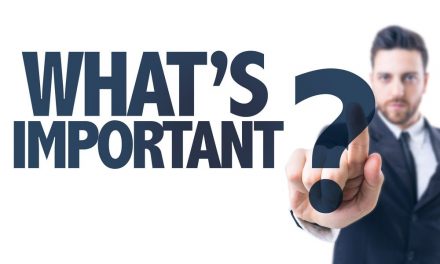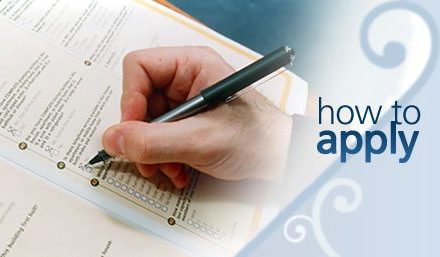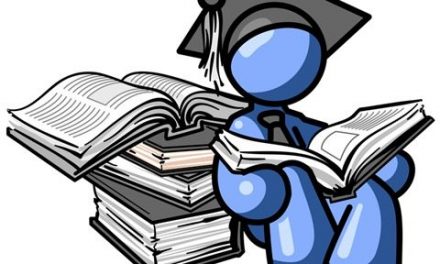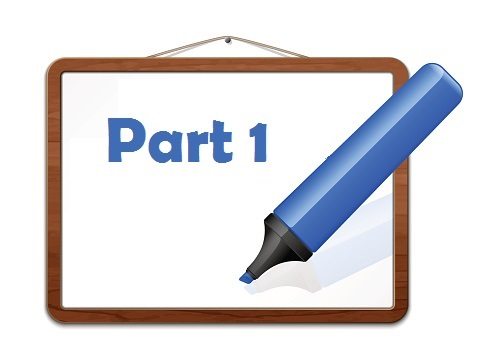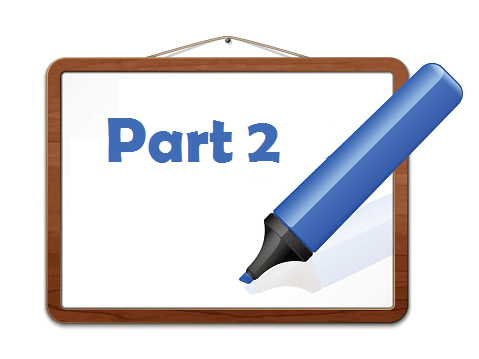1. Understand the Examination
To start off, do not panic. Having a clear understanding of what exactly needs to be done helps the candidate in focusing on creating achievable goals. If the candidate has direction, he or she will be able to attempt and pass the examination with confidence.
The passing score is 360 out of 500. Many candidates fall into the trap of trying to perfect one study unit and spend all their time on it, eventually losing out on the time to cover other units. Candidates should aim for “smart-studying”: set a target score of 80-85% in the practice test. Furthermore, although the candidate should cover all the units while preparing, it is alright if he or she is not confident with all of them but is confident with about 80-85% of the syllabus.
2. Choice of Study Tools
It is essential to pick the right kind of study tools and material while preparing for the examination; those which suit the candidate’s learning style, rather than what others recommend and speak highly of.
It is advised to go over the list of all the study materials, take free trials for the ones candidates like, go through its pedagogy for a few days, and finally settle on one and start studying. It is recommended to get the latest version of the study material so as not lose out because of outdated content if the candidate’s budget permits.
3. Stick to a Doable Study Plan
Candidates are advised to make a study plan which they can stick to and stay organised during the preparation period. A good plan is one in which the candidate can cover the entire syllabus. CMAexcel and Gleim & Wiley are great interactive tools to help candidates make a study plan.
4. Time Management During Prep
Trying to cover the syllabus by studying for 5 hours a day, every day for 3 weeks is a bad idea. Instead, it is advised that candidates utilise the study period properly and study for 10 hours a week, for 2 months. Although every candidate has different ways of studying, a morning session for study with a fresh mind is better than a late-night session that involves cramming.
5. Experience Real Testing Environment
It will be easier and more comfortable for the candidates if they experience a real testing environment. They may practice with the question bank given online, as the actual examination is completely computer-based. They may also study in a quiet, isolate space at home or at work or any other suitable place.
6. Clean Desk
Having a clean desk to study is essential for focus. A decluttered table with no distractions enables the candidate to concentrate better.
7. Limit Emails and Social Media
Ignoring emails and social media altogether is not practical during the study period. However, the candidate may limit the time he or she spends on these things. Self-discipline is key while checking emails and social media, and it goes a long way during the preparatory period.
8. Goal-Based Prioritisation
Whatever activity the candidate performs apart from studying, he or she should consider the long-term effects of that activity on his or her life and career. During a period that is crucial for the candidate’s future, it is important to weigh the benefits and otherwise of productive and unproductive activities.
9. Sleep is Important
Getting adequate rest and sleep is very important. Do not cut back on the resting time and forcefully study, trying to cram the study materials, it will most likely backfire and ruin the following days of your study. However, if the candidate feels lazy to come out of bed even after waking up, he or she may place the alarm clock or a snack that is ready to eat at the opposite end of the room. Adjusting to the new discipline would take some time but works wonders.
10. Best Use of Idle Time
Candidates may continue to study even in their idle time such as long commutes and such, making use of study material available on mobile devices, audiobooks, videos, and apps. Apart from mobile devices, candidates can make use of old-school handwritten flashcards.
11. Seek and Accept Help
It is completely alright for the candidate to seek help if needed. The candidate’s parents, (older) children, brother, sister, husband, wife, and other relatives and friends, including neighbours and colleagues, would be more than happy to help the candidate prepare for the examination in whatever capacity they can.
12. Combine Time for Study and Family
Candidates should be smart and find out creative ways to study even when they are spending time with their family, such as taking flashcards when your children are playing in the park.
13. Keeping the Brain Engaged
Just reading the textbook over long periods of time is mind-numbing and hampers the retention capacity of the candidate. Instead of getting stuck in the rut of reading long paragraphs, candidates can switch up to another method of learning, such as writing short notes along the margin, highlighting the important stuff other than the text that is already highlighted by the author, making handwritten flashcards, or summarising the topic after reading the textbook, watching the video, or listening to the audiobook.
Changing the pattern of information intake helps the brain to recharge and retain more content.
14. Concepts, Definitions, and Terms
In an examination like the CMA where 75% of the questions are multiple-choice, the examiners often test the candidates on basic and fundamental concepts, definitions, and terms. Thus, it is essential that a candidate is thorough with the key definitions and terms before the examination.
15. Memorise the Concepts, Not the Mnemonics
Review courses for the CMA contain numerous mnemonics, patterns, and associations. Although mnemonics are helpful, candidates make the mistake of memorising these associations rather than learning the concept behind them itself. This does more harm than good and could affect the performance in the examination. Furthermore, attempting all the practice questions without having a grasp of the concept behind each one of them is not good.
16. Applying Concepts Practically
A good way to learn is to apply theoretical concepts studied from the syllabus in the workplace, to see how things work practically.
17. No Selective Study
Candidates often do a selective study and focus on hot topics, on which they will be tested for sure, and skip the topics that are seemingly unimportant. The reason for this is the limited amount of preparation time they get. This is a dangerous way of studying for a crucial examination such as this. Hence, time management during preparations is very essential.
18. Working of MCQs
Multiple-choice questions have a different way of answering than essay-writing questions, for obvious reasons. Some candidates find MCQs easy, while other candidates find them difficult.
The reasons for them being easy are:
- 1 out of the 4 options is correct.
- There are 100 MCQs in all; lots of scope to score, it is okay if a few are missed out.
- MCQs test candidates based on their knowledge only, and not creativity, analytical, or writing skills, as is the case with the essay-writing section.
The reasons why candidates might find it difficult are:
- Answer options could be confusing; some of the options may seem equally correct.
- Candidates may blank out in the middle or the end of the examination due to the large number of questions.
- Some answer options may be factually correct, but completely irrelevant to the question.
19. Track of Incorrect Answers
It is essential for candidates to keep a track of their incorrect answers while solving practice tests. They may have got the wrong answer due to lack of knowledge of the concept or some other reason, or they may have got the correct answer but with no or incorrect reasoning. In such cases, candidates must note the areas in which they have gone wrong and take adequate steps to rectify their errors so that the mistake is not repeated during the actual examination.
20. Note Down Weak Areas
Identifying, keeping track of, and working to improve upon weak areas is very important for candidates during the preparatory period. It is advised that candidates note down their weak areas and work on them. Furthermore, it is recommended that the weak areas are reviewed and updated as the candidate progresses through the study material.
Fortunately, the integrated review course for the CMA examination has an online tracking system to keep track of the candidate’s weak areas via different methods.
21. Speed Up
Once a candidate is familiar with the type of questions and the pattern, he or she should solve the questions faster, given the lengthy nature of the examination and limited time.
22. Learn to Make an Educated Guess
There may be certain questions that candidates would not have come across before, thus, it is very important to make an educated guess in these situations. To make an educated guess, the candidate must have practised on a large variety of topics without skipping any questions and must have taken practice tests to experience the real testing conditions.
23. Do the Mock Examination
Mock examinations are set so as to make the candidate manage his time well and allocate an adequate amount of time to each section of the actual examination. If the candidate does not know the answer to a particular question, he or she may skip it and come back to it later if time permits. If he or she is running low on time during the examination, it is advised to attempt two easy questions rather than wasting time on one difficult question.
24. Time Management During the Exam
Time management and allocation during the examination are crucial for a test like the CMA, which tends to be complex and lengthy. Given the total time to be 3 hours for 100 questions, a candidate should spend 1.8 minutes per question, if the time is divided evenly across all the questions.
25. Read All MCQ Answer Options
It is important to carefully read and understand all the MCQ answer options before choosing one, as two or more answer options may seem equally correct. Sometimes all answer options are correct, so a candidate must not rush while picking a correct option.
26. Do Not Leave Questions Unanswered
Fortunately, there is no negative marking for incorrect answers, so a candidate should not leave any question unanswered. If he or she is falling short of time, a blind or educated guess is better than not answering them at all.
27. Predict the Answer Beforehand
Since some of the MCQs have two or more answer options that seem equally correct, there is only one correct answer; the other three choices are meant to distract and confuse the candidate. It is advised that the candidate predicts the correct answer to the question even before reading the answer options, so he or she is less likely to get confused with similar answer options.
28. Select the Correct and Relevant Answer
In a few cases, the chosen option might be correct, but irrelevant to the question asked. The candidate must ensure that the chosen answer is correct and relevant to the topic covered in the question.
29. Eliminate Partly True Answers
Before choosing an answer option, the candidate must ensure that that option is relevant to the question in all situations, which makes it the incorrect answer. Some options may be relevant to the question, but not always true in all situations. The candidate should eliminate such partly true answer options.
30. Look Out for Absolute Words
Some answer options may contain absolute words such as “ever”, “always”, “never”, and “none”, among others. The candidate must know that the questions asked in the examination pertain to real-life practical business situations, where rarely do they come across such absolute, black-and-white solutions. Thus, answer options with these kinds of words are likely to be wrong.
31. Negatives and Double Negatives
Few questions may contain negatives, double negatives, and two-part statements. These are meant to confuse the candidates. However, negative words like “not” are made bold to ensure clarity of meaning of the sentence. Candidates should be careful about the presence of such words in questions that reverse their meaning.
32. Avoid Weird Answers
If the answer option seems weird or practically impossible, it is likely to be a wrong answer. Candidates must use their common sense while choosing among answer options like these.
The candidate can increase the probability of choosing the correct answer by eliminating impossible answer options.
33. Grammatical Clues
Candidates should look out for grammatical clues that help them choose the right answer. If the question ends with “an”, the correct answer must begin with a vowel.
34. Choose the Most Informative Answer
If an answer option contains keywords that are mentioned in the question or is long and descriptive that makes it relevant to the question, it is likely to be the correct option.
35. True/False Method
If the candidate comes across two similar answer options, he or she should look out for any part of the answer that is false and makes the entire option wrong and invalid.
36. Do Not Over-Complicate Answers
Many a times, the candidate feels that a certain answer option is wrong because it looks simple and obvious. In such situations, candidates should not over-complicate their thinking process and choose a seemingly complex answer. Some of the questions in the examination have straightforward answers.
37. Follow the First Instinct
The candidate’s first instinct of the correct answer is often correct if he or she is well-prepared. MCQs are designed in such a way that the candidates recognise correct options in a glance.
38. Discard Answers That Do Not Feel Right
Candidates should imagine each answer option as the correct one and apply each one to the question. Some of the options may not feel right and may be irrelevant to the question asked. This helps when the candidate is stuck on a question or cannot decide between two similar options.
39. Say No to Superstitions
The fully-computerised examination picks questions from a large pool and put it forth to the candidate in a completely random order. Candidates should not worry if they have marked the same option number for multiple or consecutive questions. Trying to find a pattern in the questions and answer options is a waste of time.
40. Understanding Essay-Writing Questions
Essays are scored based on the candidate’s knowledge of the syllabus, ability to clearly and logically express himself or herself in writing, and the ability to apply concepts in practical real-world business situations. Thus, the quality of content and presentation are major factors that the essays are graded on, something on which the candidate must focus.
41. Familiarity with Writing Software
During the preparatory period, a candidate must acquaint himself or herself with the various functions of the writing software and should be comfortable in using it for the actual examination. Certain parts of the essay require candidates to show calculations and draw tables. The candidate must not waste time with formatting tables and calculations in the actual examination. Gleim & Wiley have interactive features on their online platform for this purpose.
42. How to Prepare for Essay-Writing
It is advised that the candidates pick some MCQs and practice answering them as an essay by typing them out. This is the only way that the candidates can “prepare” for the essay-writing questions.
43. No Cyberslang
It is seen that candidates are increasingly using texting jargon, abbreviations, and cyberslang in their essays, which is completely unacceptable. It is highly recommended to use proper vocabulary and grammar so that candidates do not unnecessarily lose marks in the essay because of the language.
44. Organising Thoughts for the Essay
Essays are required to have a flow and clarity of thought, which is structured into the introduction, body, and conclusion. The essay should be relevant to the question.
45. Keep the Scratch Paper Neat
Although the scratch paper is provided to the candidates for rough work, calculations, and organising thoughts for the essay, it is advised that the candidates write neatly on the scratch paper and label them according to the question number, which will only benefit them when they are referring to it.
46. Control Emotions
Candidates are advised to have a positive outlook towards the examination and disregard any thoughts that may negatively affect their performance. It is not the end of the world on the occasion of a failure, and there is no point in thinking about the consequences of a failure on future career and income prospects. Building up unnecessary anxiety only does harm to the candidate. Candidates should focus on the things that they can control, such as performing well in the examination.
47. Exam Day Goals
In short, the candidate’s ultimate goals on the day of the examination are: to complete each section on time; select the best possible answer based on his or her knowledge; and to make an educated guess if he or she does not know the answer to the question.
48. Sleep Well on the Previous Night
It is essential that the candidate is well-rested and mentally and physically recharged before giving the examination. Studying for long hours trying to cram the content is detrimental and will do no good during the examination.
49. Avoid Student Forums
Candidates are advised to avoid student forums to vent their feelings, nervousness and look for encouragement a few days before the examination. Chances are that they may encounter a fellow student with negative energy that could negatively affect himself or herself.
50. Say “I am ready”
Candidates are advised to tell themselves that they are ready before entering the examination centre. This boosts their confidence and lowers their anxiety, thus improving the ability to understand the questions and choose the correct answers.
